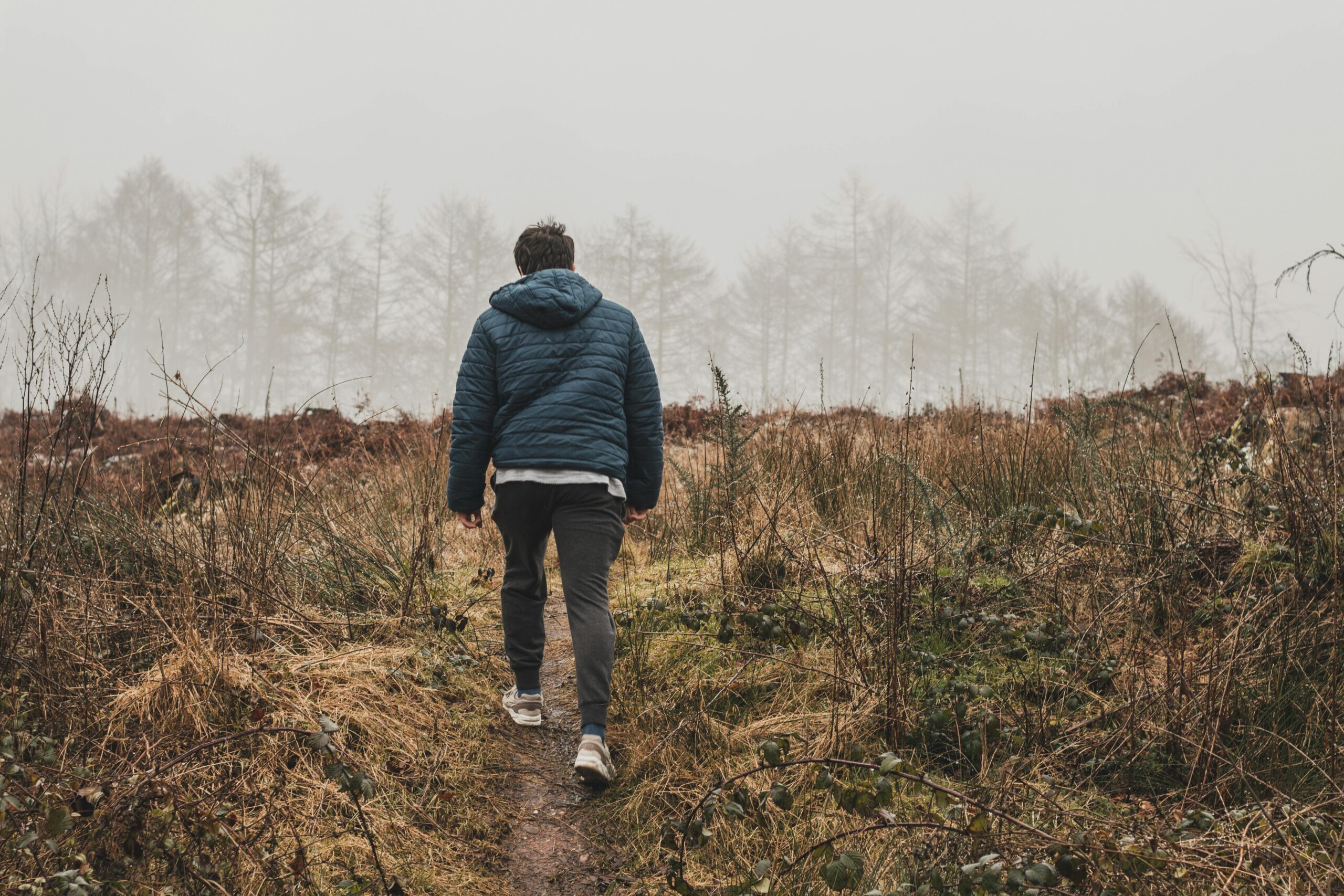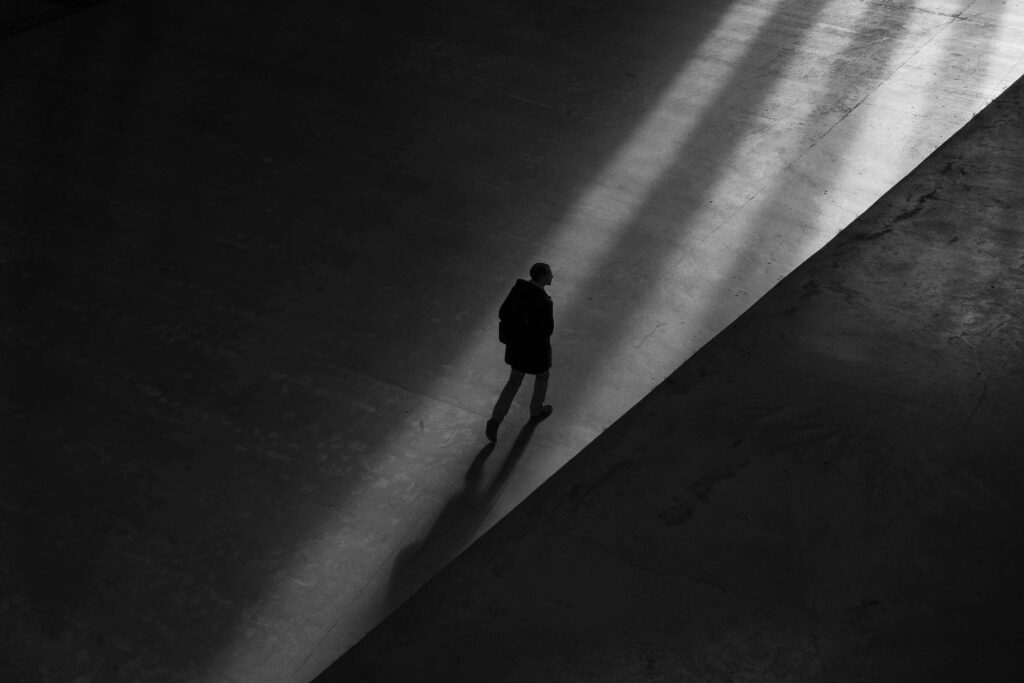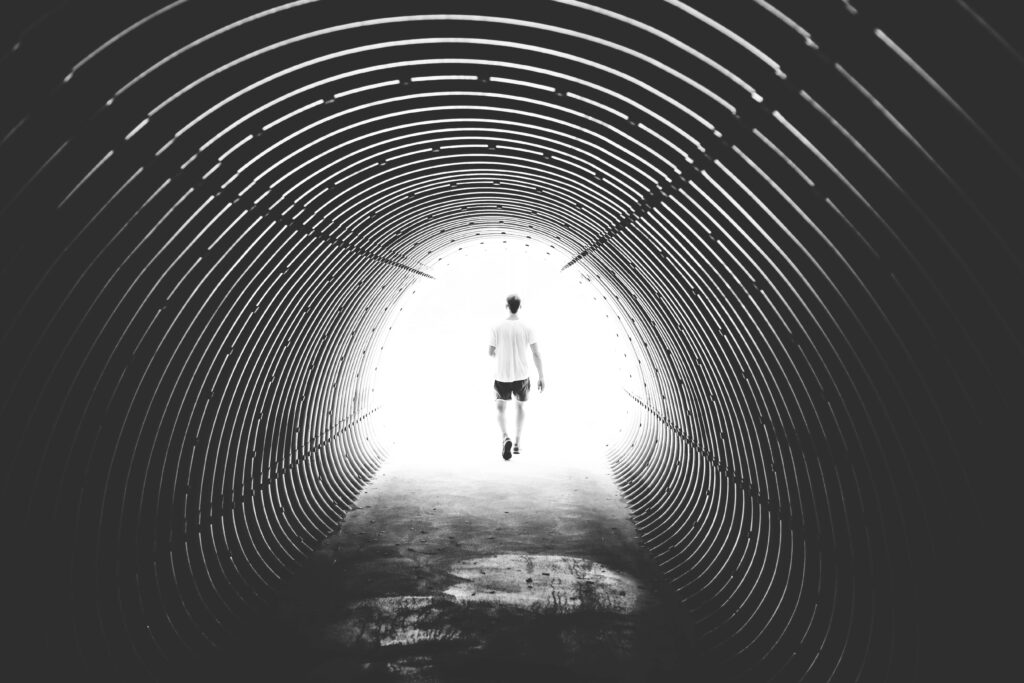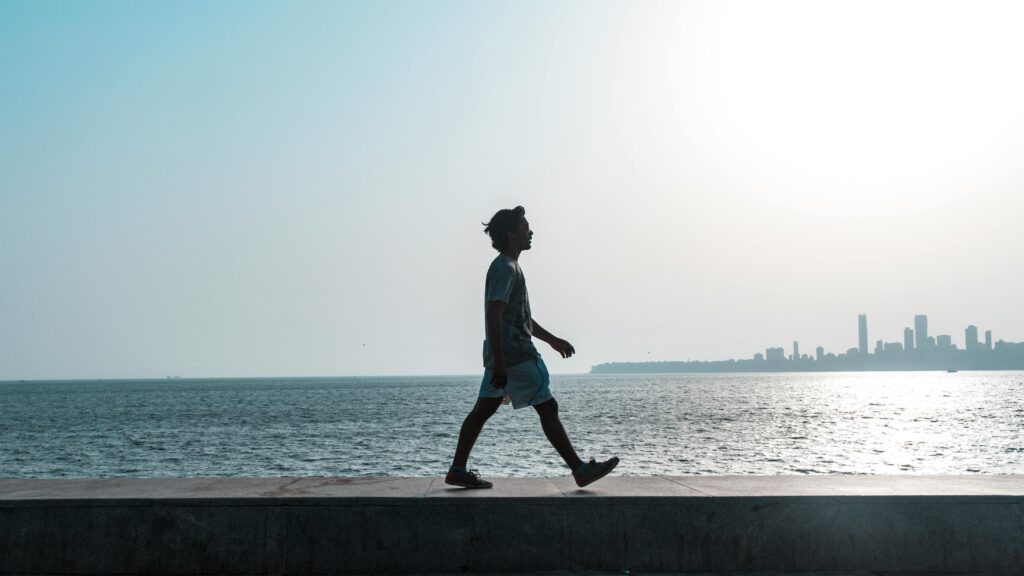Italian Man Walks 450km to “Cool Off” After Argument With Wife

Have you ever walked out after an argument not knowing where you were going, just knowing you needed to go? Most of us make it to the end of the block, maybe a park bench, maybe our car. But one man in Italy kept walking until he’d crossed 450 kilometers of countryside, coast, and quiet.
It wasn’t rage that carried him. It wasn’t madness. It was something far more familiar: the overwhelming need to find space when the walls feel like they’re closing in.
In an age of instant reactions and digital outbursts, this man’s response was analog and ancient. Step by step, he chose movement over explosion, silence over screaming. No plan, no suitcase, just his breath and the road ahead.
This isn’t just a story about a long walk. It’s a mirror held up to all of us who’ve ever needed distance to find clarity.
The Journey Fueled by Emotion
It began with a fight. Not the kind that ends in slamming doors or shattered dishes, but the kind that leaves something boiling just beneath the surface. The kind that demands release.
So, in the small city of Como in northern Italy, a 48-year-old man stepped out of his house to cool off. No bag. No map. No plan. Just frustration in his chest and silence in his ears. What he likely imagined would be a short walk around the block unfolded into a journey across nearly half the country 450 kilometers on foot, all the way to the coastal town of Fano.
He walked nearly 60 kilometers each day. No bus, no ride, no shortcuts. Just pavement, pain, and a quiet mission to outrun whatever had erupted back home. “I came here on foot,” he told the police who eventually stopped him around 2 a.m., baffled to find him wandering so far from his hometown. “I didn’t use any transport.”
In 2020, an italian man walked 280 miles (450 km) to cool off after he had an argument with his wife pic.twitter.com/2LznycPh79
— internet hall of fame (@InternetH0F) March 11, 2025
Along the way, strangers offered him bread, water, kindness. He didn’t beg he simply moved. And perhaps that movement was all he needed. “I’m okay,” he told the officers. “Just a bit tired.”
He hadn’t realized how far he had come. Maybe because distance was never the point. This wasn’t a journey measured in kilometers, but in breaths exhaled and anger diffused.
For seven days, his feet kept pace with his healing. And while many might question his method, few can deny the clarity found in putting one foot in front of the other when your mind is caught in a storm and your heart has no words left to speak.
When We Need to Walk Away Literally and Metaphorically

There’s a moment right after the argument, the disappointment, the breaking point when every part of you screams to escape. Not to avoid, not to abandon, but to preserve. To protect whatever part of yourself is still calm, still intact.
That’s the space this man from Como stepped into. And while most of us don’t end up walking 450 kilometers, we’ve all been there. That emotional edge, where staying risks saying things we don’t mean or hearing things we can’t un-hear.
Psychologists call it “flooding” when the nervous system is so overwhelmed by emotion that rational thought shuts down. According to Dr. John Gottman, a renowned relationship researcher, taking at least 20 minutes of separation in moments like these allows the body to reset, the heart rate to lower, and the mind to re-engage. But what happens when the space we need can’t be confined to time? What if 20 minutes isn’t enough?
That’s when distance becomes medicine.
The act of walking itself is deeply tied to emotional processing. In fact, a 2014 study published in Frontiers in Psychology found that bilateral movement like walking stimulates both hemispheres of the brain, aiding emotional regulation and problem-solving. It’s no wonder so many great thinkers from Nietzsche to Steve Jobs turned to walking as a form of therapy.
We don’t always need a therapist’s couch to start healing. Sometimes, the sidewalk will do.
And while walking away from a loved one in anger can feel like retreat, it can also be the ultimate act of self-control. Because stepping away is not the same as giving up. It’s about giving space to the moment, to the relationship, and to yourself.
This Italian man’s journey was unusual in scale, yes but deeply human in intent. His footsteps echoed what so many of us have felt: I need to go, not to leave you behind, but to find myself again.
Strangers, Solitude, and the Unexpected Kindness of the Road

He didn’t pack supplies. He had no reservations or roadside plans. Yet somehow, step by step, day by day, the road provided.
Along his 450-kilometer walk, the man from Como encountered more than silence and sore feet he encountered kindness. Strangers offered him food and drink. Not out of obligation. Not for attention. But because something in his presence must have spoken to them without a word of pain, of humility, of a fellow human being just trying to get somewhere with dignity intact.
In a world that often feels disconnected and suspicious, this matters. In the middle of a global lockdown, when fear and isolation were at their peak, people still reached out to help a man they didn’t know, with nothing more than tired eyes and a quiet resolve.
Kindness is rarely loud. It doesn’t need applause. Sometimes it’s just a loaf of bread passed into open hands. A bottle of water left by the gate. A warm look that says, “I see you.” And it’s in those moments—simple and sacred that we remember the village still exists, scattered as it may be.
Ironically, it was solitude that led this man to community. He walked to be alone, and in doing so, met the very best of humanity not in headlines or speeches, but in gestures too small to record and too honest to forget.
Sometimes we think healing requires retreating from the world. But the truth is, when we’re vulnerable enough to walk openly through it, the world has a strange way of meeting us halfway.
The Price of Peace And the Value of It

When police stopped the man in Fano at 2 a.m., they weren’t responding to violence, theft, or danger. They were enforcing a curfew. Italy, like much of the world at the time, was deep in the throes of the COVID-19 pandemic. National lockdowns restricted movement, and venturing outside after 10 p.m. was forbidden.
So when they found this solitary walker, cold and tired but calm, they didn’t just ask why they fined him. €400. Roughly $450. A legal penalty for a deeply human act: the search for peace.
It’s easy to scoff at the irony. A man walks across the country without hurting anyone, fueled only by emotion and resilience, and he’s fined for it. But beyond the legal technicality lies a greater question: What is the real cost of emotional survival? And more importantly, is it ever too much?
In the grand scheme, €400 is small. But what it bought him was something many people struggle to afford: space to feel, to reset, to remember who they are outside the heat of conflict. It was a price paid not for rebellion, but for restoration.
Still, the story forces us to confront the uncomfortable tension between public rules and private needs. Lockdowns protected lives. But they also confined people in ways that, for some, intensified emotional distress. And while the law must treat all violations the same, the reasons behind them are never equal.
In a way, the fine became symbolic proof that peace sometimes costs more than we expect. But perhaps it’s also a reminder: true calm, true emotional clarity, is never free. It demands time. It demands courage. And sometimes, it demands a walk that no one understands until it’s over.
Reactions, Nicknames, and Why It Went Viral

It didn’t take long for the story to ripple across the internet. As headlines surfaced “Man Walks 450km After Argument with Wife” the public responded with a mix of admiration, amusement, and deep, unexpected empathy.
He was quickly dubbed “Italy’s Forrest Gump,” a reference to the iconic film character who runs across America with no clear destination, only a heart full of unspoken turmoil. But this wasn’t just a meme. It was a modern myth in the making one man, walking not toward fame or fortune, but toward emotional quiet.
Reddit lit up with jokes that felt less like mockery and more like recognition. “Who among us hasn’t walked into a different timezone after a spousal disagreement?” one user quipped. Others broke down the math, noting that yes, walking 280 miles in a week at roughly 3.5 mph is entirely possible. One simply said, “Walk, Forrest, walk.”
But beneath the humor, something deeper was resonating.
In a time when so much noise surrounded us political division, lockdown anxiety, social media overload this man’s choice struck a chord. It was raw. Honest. Human. He didn’t tweet his pain or film a reaction video. He walked. He reminded us that it’s okay to not have a polished response. That there is strength in simply moving forward, one step at a time.
What made the story viral wasn’t just the distance. It was the relatability. We’ve all had moments we wanted to escape, moments we wished we could leave behind everything just to breathe. He did it without drama, without destruction.
And for that, the world didn’t just laugh. It nodded. Because in his silence, we heard something universal.
Step by Step, We Heal
Not all journeys are measured in miles. Some are measured in moments the decision to pause, to breathe, to step away instead of lash out. The Italian man who walked 450 kilometers didn’t just go the distance in a physical sense. He showed us what it looks like to protect your peace, even when the world doesn’t understand the cost.
We live in a culture that celebrates reaction. We’re told to speak up, clap back, stand our ground. But sometimes, the bravest thing you can do is walk away. Not forever. Just far enough to hear your own thoughts again.
That’s what this man did. And in doing so, he taught us that healing doesn’t always happen in stillness. Sometimes, it happens in motion. In quiet steps. In unfamiliar towns. In the kindness of strangers and the simplicity of a long road.
So the next time the heat rises whether in a relationship, at work, or within yourself ask: Do I need to fight right now, or do I need to walk? Not just away from the noise, but toward the version of myself that knows how to listen, how to let go, how to lead with clarity instead of chaos.
Because you don’t need 450 kilometers to find peace.
You just need the courage to take the first step.
Loading...

